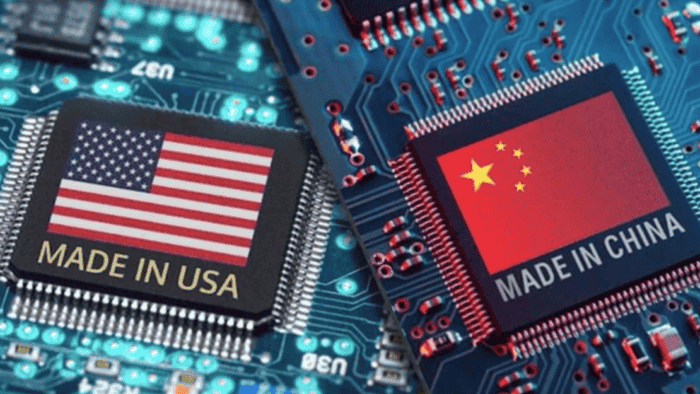If you’ve been asking yourselves when will China strike back on US and EU sanctions, the answer is – now. A new China export ban regulation restricts exports of raw materials, including gallium nitride (GaN) and germanium dioxide (GeO2). These two are used in the chip industry and are crucial for chip production.
In a statement from the Chinese Ministry of Commerce, companies that export 38 raw materials need to apply for the license. This move is apparently targeting US and EU chip and telecom industries. It represents a tit-for-that response to Western sanctions against China. Although it’s not the first one, it’s considered to be crucial in the ongoing tech war. The new rules apply from August 1st.
The China export ban has been introduced shortly after the Dutch government put restrictions export of ASML to Chinese companies. Namely, ASML is the only company in the world producing high-precision lithographic machines, which are used in the chip-making industry. The Dutch government has long been under US pressure not to sell these machines to the Chinese.
![]()
Some analysts consider this move crucial in the tech war. China currently controls the vast majority of the world’s production of rare metals. Many of them are used in chip production, telecom supplies, and defense systems. Gallium is used in producing chips. When combined with other elements, it improves transmission speed and efficiency in various products. The most crucial are phone displays, solar panels, and radars.
China export ban could change the course of the tech war
China is the world’s top supplier of these metals. According to EU study it covers 94% of the gallium and 83% of the germanium world supply. The US import of gallium is valued at $225M in 2022, according to US data.
According to some analysts, this move won’t hurt the West in the long run. The Chinese government is aware of the fact that these metals can be found in other countries. Their primary objective is to slow down the Western chip industry, as it will probably need some time to diversify supplies, as the China export ban now complicates their plans.
This process could take a few years, though. In the meantime, China hopes to accelerate its chip production to catch up with manufacturers like TSMC and Samsung. The latter two are currently the only ones capable of making cutting-edge chips. As we know, those are crucial for the smartphone, computer, and automotive industries.
Some analysts think that even if Western countries start production of these materials in a short period of time, this China export ban will affect the price.
At this point, nobody can tell for sure how this tech war will end. Every side has its own legitimate right not to sell anything to anyone. Still, it visibly counters all rules of free trade and will surely lead to a greater mess on the market. It could result in new supply chain issues, and make new shortages, and the final products could become more expensive.





